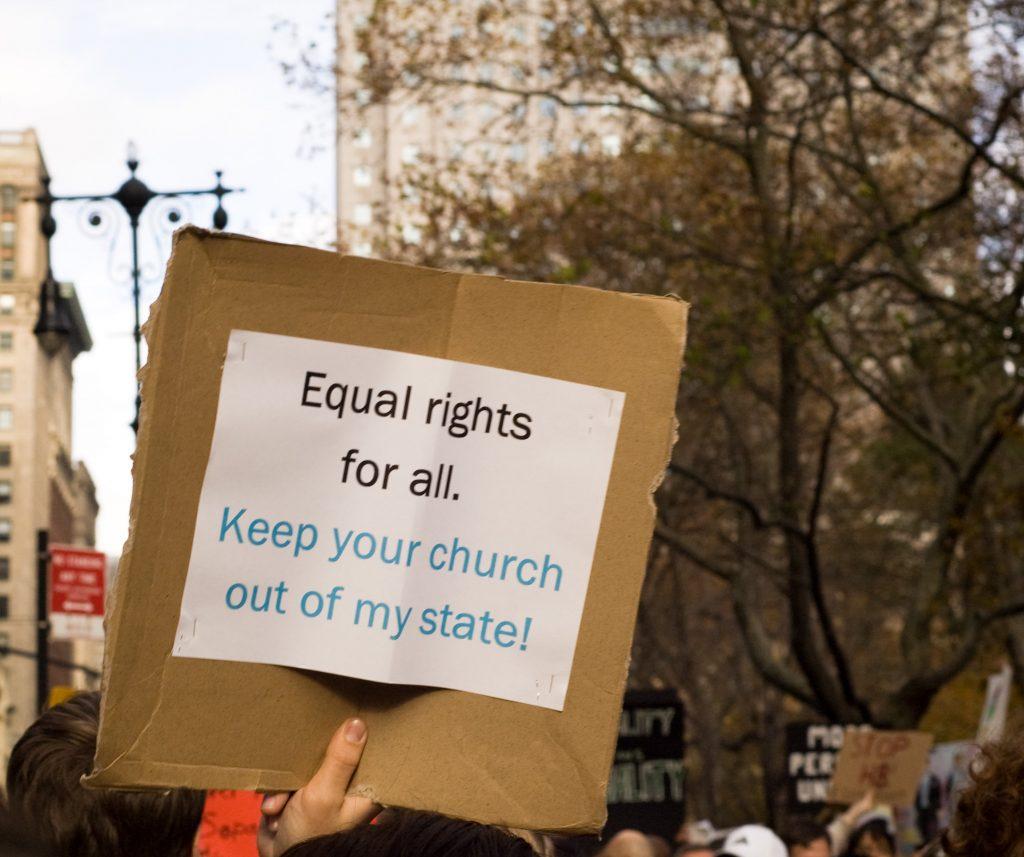“I contemplate with sovereign reverence that act of the whole American people which declared that their legislature should ‘make no law respecting an establishment of religion, or prohibiting the free exercise thereof,’ thus building a wall of separation between Church & State.”
-Thomas Jefferson; January 1, 1802
It has been a basic tenet of our democracy that there be a wall between religion and government, and rightfully so. No government should have the power to dictate the expressions and beliefs of their citizenry. It also freed many from the tyrannical religiosity of early Europe where there were state-sanctioned religions and violations against these doctrines could mean excommunication and exile not only from the church but also everyday life. By having this separation it has allowed a diverse multitude of congregations to form across the United States, each fulfilling the needs of their members.
It doesn’t stop there, there are many interpretations of “separation of church and state”. The Supreme Court, starting in 1947, has interpreted it to mean that the government and all government-affiliated organizations cannot promote religion or religious symbols. This came to a head for many Christians in 1962 when it was decided that public schools could no longer practice public prayer (private prayer is still allowed). It was seen as an overstep on what was a long-standing tradition and a connection to the founding fathers’ religious roots. However, the decision is not an incorrect one. Schools, especially public ones, are extensions of the government and are funded using taxpayer money. So, they should not have any particular religion that they promote.
Small private businesses and their practices also intersect with the separation of church and state. Many small business owners have their own deep-seated beliefs and it involves how they view their business. The infamous Supreme Court case, Obergefell v. Hodges, a baker refused to make a cake for a gay couple on the grounds that it went against his religious beliefs. While currently the case is under investigation, many small businesses are allowed many concessions in their dealings if backed by religious beliefs. This is usually due to the fact that businesses are considered extensions of the owner, especially when small, and they may be more discriminating in who they hire or serve due to their mere size as they may only be hiring and serving a few people in their community.
There is a great deal of controversy over the true extent of separation, and it is usually focused on whether the government should have an influence over religion. However, just as present is the fight to break down separation on the opposite front and erode the separation to gain more influence for religion over our governing bodies. And while many would like to see their government espouse their own morals and creeds the erosion of the barrier between religion and governance is the first step to a theocracy, something I hope to never see in America.





